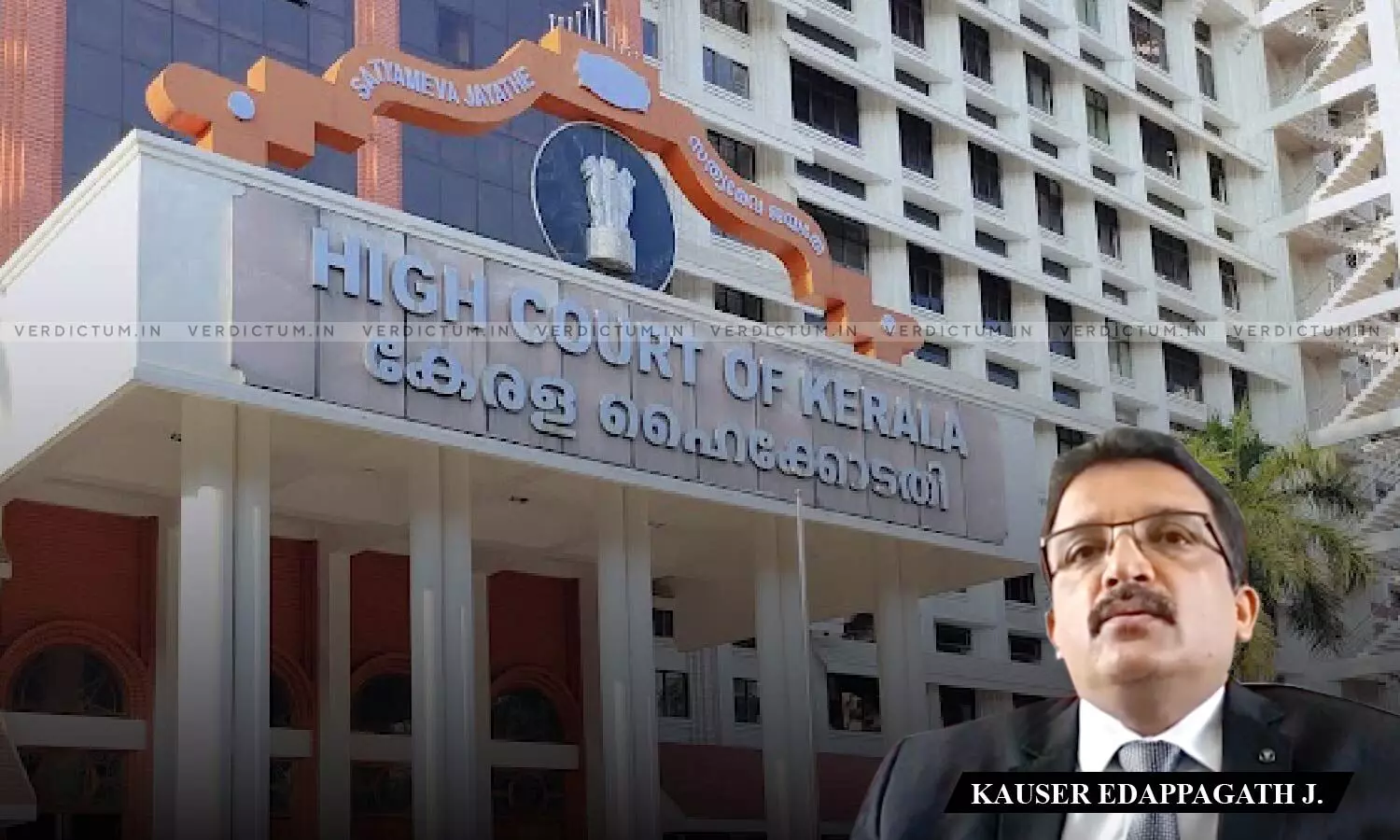
State Vigilance And Anti-Corruption Bureau Has Power To Register Crimes And Investigate Offences Under PC Act: Kerala HC Holds
 |
|The Kerala High Court has held that the Vigilance and Anti-Corruption Bureau (VACB) of the State has the authority to register crimes and investigate offences under the Prevention of Corruption Act, 1988 (PC Act).
The Court was dealing with a batch of criminal revision petitions wherein an important question relating to the authority of VACB of the State to register the crime and investigate the offences under the PC Act committed by the employees of the Central Government arose for consideration.
A Single Bench of Justice Kauser Edappagath observed, “I hold that the VACB, being a specially constituted body to investigate into the bribery, corruption and misconduct mainly under the P.C. Act is always clothed with the authority to investigate offences involving corruption that take place within the State, whether it is committed by a Central Government employee or a State Government employee. Hence, the impugned order discharging the accused Nos.2 to 4 cannot be sustained.”
The Bench said that there is no special provision in the PC Act or DSPE Act (Delhi Special Police Establishment Act, 1946) excluding or preventing the State police or a Special Agency of the State from investigating cases relating to the corruption of the Central Government employees.
Sr. PP S. Rekha and Spl. PP A. Rajesh represented the revision petitioner/State while Advocate Shameena Salahudheen represented the respondent/accused.
Facts of the Case -
The VACB, Kottayam unit registered a crime as against four accused persons and after completing the investigation, they filed final report at the court of Enquiry Commissioner and Special Judge, Kottayam (for short, 'the court below') alleging offences punishable under Sections 13(1)(c) and (d) read with 13(2) of the P.C. Act and Sections 120-B, 420, 468, 471 and 204 of the IPC. The first accused was the Village Extension Officer and the Implementing Officer of a project. The other three accused were the officials of North Malabar Gramin Bank and all the accused persons conspired together with the intention to cheat Thalayolaparamba Grama Panchayath and the beneficiaries of the said project.
In pursuance of the conspiracy, the first accused misappropriated the project amount of Rs. 1,85,000/- by forging signatures in the pay orders issued in the name of the beneficiaries and the co-accused without ascertaining the beneficiaries passed non-transferable pay orders and enabled the first accused to derive undue pecuniary advantage. The court below took cognizance of the case and the accused persons filed three separate applications for discharge under Section 239 of Cr.P.C. on the ground that the VACB had no authority to register the crime in as much as they are the employees of the Central Government. The court below accepted the said contention and discharged them.
The High Court in the above context of the case said, “It is for convenience and to avoid duplication of work, the Central Bureau of Investigation - a specialised investigating agency under the Special Police Establishment - is entrusted with the task of investigation of the cases of corruption and bribery against the employees of Central Government and its Undertakings and the Anti - Corruption Bureau - a specialised investigating agency of the State - is entrusted with the task of investigation of the cases of corruption and bribery against the employees of State Government and its Undertakings.”
The Court took note of the fact that the registration of a crime and subsequent investigation can only be undertaken by the police or investigating agency.
“None of the provisions of the P.C Act or DSPE Act authorises CBI or Central Vigilance Commission or any other Central Government Agency alone to investigate in matters relating to the Central Government employees”, further noted the Court.
The Court added that in the absence of a specific provision in the DSPE Act or PC Act divesting the power of the regular police authorities to investigate into the offences under any other competent law, it cannot be said that the power of the State police or a Special Agency of the State to register a crime and investigate into the offence allegedly committed by the Central Government employees in their State is taken away.
“The court below did not consider the contention of the accused on merits. On the other hand, the court below allowed the application on the ground that the investigating agency had no authority to conduct the investigation”, concluded the Court.
Accordingly, the Court disposed of the criminal revision petitions and directed the court below to consider the application for discharge preferred by the accused on merits.
Cause Title- The State of Kerala v. Navaneeth Krishnan (Neutral Citation: 2023:KER:44656)